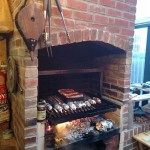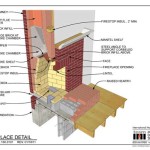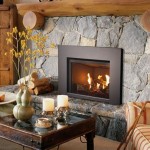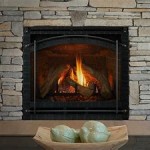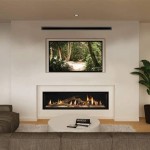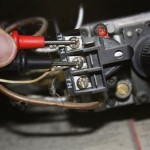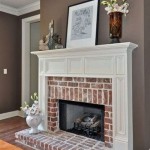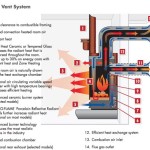Essential Considerations for Wood Burning Fireplace Inserts Flue
Wood burning fireplace inserts enhance home heating efficiency and aesthetics. An essential component of these inserts is the flue, a vertical passage that carries combustion gases out of the house. Understanding the crucial aspects of an insert's flue is vital for safe and efficient operation.
Flue Material: Durability and Composition
The flue is typically made of durable materials like stainless steel or galvanized steel. These materials are resistant to corrosion and high temperatures, ensuring longevity and safety. The thickness of the flue pipe and its insulation play a role in its overall performance.
Proper Sizing and Pitch: Ensuring Smoke Removal
The dimensions of the flue, such as its diameter and length, must be carefully calculated to ensure efficient smoke removal. A proper pitch or angle of the flue allows condensation to drain properly and prevents smoke from re-entering the living space.
Chimney Connection: Safe and Draft-Free
The flue connects to the chimney, which should be properly sized and lined to accommodate the insert's heat output. The connection must be airtight and draft-free to prevent backdraft and potential hazards like carbon monoxide leaks.
Insulation: Minimizing Condensation and Heat Loss
Flue pipes are often insulated to reduce heat loss and minimize condensation. Insulation helps maintain a consistent temperature throughout the flue, preventing steam from accumulating and potentially causing corrosion or blockages.
Maintenance and Inspection: Ensuring Functionality
Regular maintenance and inspection of the flue are crucial for its safe and effective operation. Chimney sweeps can professionally clean and inspect the flue, removing soot, creosote, and other debris that could obstruct airflow or pose a fire hazard.
Certified and Approved: Safety Standards
When selecting a flue for a wood burning fireplace insert, it is essential to choose products that meet industry standards and certifications. These certifications provide assurance that the flue components meet safety and performance criteria.
Conclusion:
Understanding the essential aspects of wood burning fireplace inserts' flue systems is paramount for ensuring efficient heating, combustion safety, and a smoke-free environment. By considering the material durability, proper sizing and pitch, secure chimney connection, insulation, regular maintenance, and certified components, homeowners can maximize the benefits of their wood burning fireplace inserts while upholding safety and comfort.

Ventis Hei240 Wood Burning Insert Rockford Chimney

Chimney Liners Usa Fireplace Insert Venting Information

Why A Wood Burning Fireplace Insert Bethesda Md Service

Wood Burning Fireplace Inserts Insert Installation

Wood Fireplace Inserts Burning For Fireplaces Rockford Chimney

Fireplace Inserts Everything You Need To Know Full Service Chimney

Chimney Flue Exhaust Kit Fireplace Insert For Corn Or Wood Pellet

How Fireplace Inserts Work We Love Fire

Benefits Of Installing A Wood Burning Fireplace Insert

Wood Fireplace Sucks The Heat Out Misterfix It Com
Related Posts

